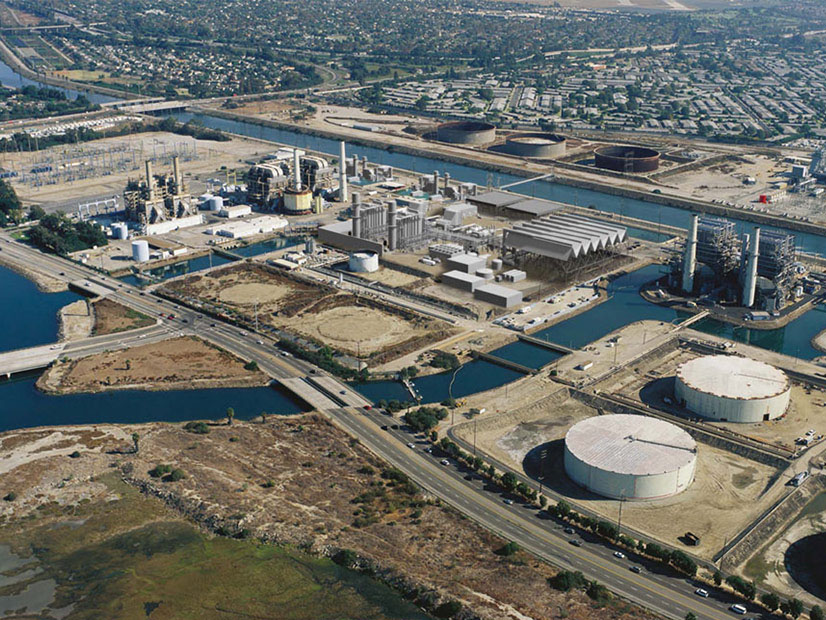California Gov. Gavin Newsom signed major legislation Thursday that would expedite permitting for new generation and storage facilities and potentially extend the life of aging gas plants and the state’s last nuclear power plant in an effort to maintain grid reliability during the coming summers.
Assembly Bill 205 and Senate Bill 122, introduced as placeholder measures in January, were rewritten and published as omnibus energy budget trailer bills on Sunday, with only a few days for public review. The State Legislature passed AB 205 on Wednesday night and sent it to Newsom to sign. Lawmakers voted on the Senate version Thursday and submitted it to the governor. Both bills will take effect at the start of the new fiscal year Friday.
The measures approved Newsom’s proposed $5.2 billion strategic reliability reserve consisting of “existing generation capacity that was scheduled to retire, new generation, new storage projects, clean backup generation projects, [and] diesel and natural gas backup generation projects.” (See Calif. Governor Proposes $5B ‘Reliability Reserve’.)
They also make the Department of Water Resources the backstop procurement agency for short- and mid-term reliability needs. That could mean purchasing energy from Pacific Gas and Electric’s Diablo Canyon nuclear power plant, scheduled to retire in 2025, and a fleet of aging natural gas plants along the California coast. The once-through cooling plants had been scheduled to retire in 2020 because of their destruction of ocean life, but the state extended their lifespans to 2023 for grid reliability. (See OTC Plants to Remain Open, Calif. Water Board Rules.)
Continued reliance on the plants could extend their lifespans beyond the retirement dates, critics of the trailer bills said. The U.S. Department of Energy retains authority over Diablo Canyon, but Newsom’s office has petitioned it for a share of federal funds to keep the plant operating, and the bills would set aside $75 million toward that goal.
The measures also enact sweeping changes to approvals of new energy projects by creating an “opt-in” process to allow the California Energy Commission (CEC) to consolidate permitting, including for larger solar arrays and battery installations, while mostly bypassing other federal, state and local permitting processes. The typically laborious review under the California Environmental Quality Act will also be streamlined.
In a joint statement, environmental groups urged lawmakers to take more time to fix the bills, which they said give “unprecedented new authority and a blanket exemption for the Department of Water Resources to finance, construct and/or operate any type of energy project without compliance with existing local, state or federal laws.”
The Nature Conservancy, Sierra Club and two dozen other groups also protested the creation of a new approval process at the CEC that “completely overrides the jurisdiction” of state, regional and local planning authorities.
During Wednesday night’s floor debate, Democratic lawmakers, including some staunch environmentalists, defended the bills as necessary for maintaining reliability over the next several years as the state transitions toward 100% clean energy.
“We’ve looked at the data, and we realize that we’re going to have or may have a shortfall,” State Sen. Bob Wieckowski (D) said. “It may happen this summer. It may happen in 2023, 2024 [or] 2025. … It may mean in order to keep the lights on [for the residents] of California, we may have to procure some of these dirty fossil fuels.”
After energy emergencies the past two summers, including rolling blackouts in August 2020, the state has struggled to bolster capacity to meet peak demand. Extreme heat, drought and wildfires have made that difficult, and state energy planners have said the state could face more shortfalls during the next four summers of 1,700 to 10,000 MW, depending on the severity of circumstances. (See Heat, Fire and Supply Chain Woes Threaten Calif. Reliability.)
Lawmakers previously accepted Newsom’s broad energy plan in principle but left spending details to be worked out in closed-door negotiations between the governor’s office and legislative leaders in recent weeks. (See Calif. Lawmakers Offer Alternative Energy Budget.) The result was the language in the budget trailer bills approved Thursday.



